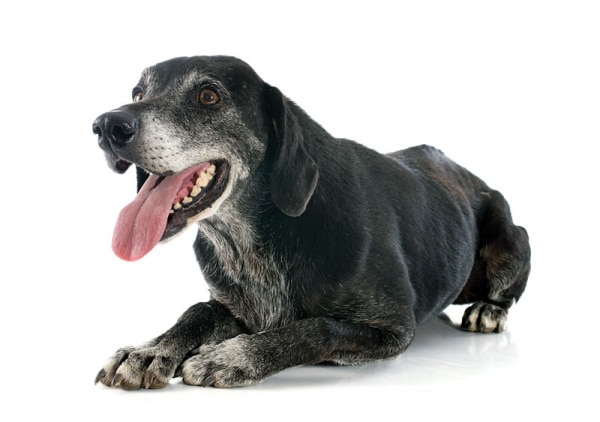Blog Six Tips on Caring for Older Dogs
In your eyes, your dog will alway s be a puppy, even if she’s getting up there in canine (and human) years, or her muzzle is beginning to gray. However, eventually the day will come when you notice that your pup is panting a little bit harder after a long walk and struggling to climb onto your bed. It’s time to start adjusting to the lifestyle needs of an older dog.
When a dog is considered a senior largely depends on breed. Smaller dogs (such as Chihuahuas or Terriers) don’t reach their golden years until they’re 10 or 12, while a Great Dane may attain senior status at the age of five or six. Beyond size and breed, genetics, diet and environment all have an impact on a dog’s life expectancy.
Just as modern medicine has extended the lives of people, with the right combination of attention and preventive care, it can also extend the lives of dogs. If you want caring for older dogs to have a long and happy life, consider incorporating these strategies into your pet care routine.
Six Tips on Caring for Older Dogs
Remember your dog’s teeth. Dental hygiene is particularly crucial as your dog ages. Regular brushing and professional cleaning can prevent painful dental disease and decay (and help your dog avoid the chewing problems mentioned earlier). If your dog doesn’t enjoy having his/her teeth brushed, consider dental treats and toys instead.
Watch your dog’s diet. Mature dogs often have food issues, including problems chewing, lack of appetite, obesity and digestive difficulties. Consult with your vet on the best diet and exercise plan for your aging dog. Dietary changes may include adding more fiber to aid with digestion or decreasing carbohydrates to maintain optimal weight. Supplements such as fish oil or glucosamine can be added to alleviate joint pain.
Exercise your dog’s body and mind. Like people, aging dogs experience pain and have difficulty performing physical activities they used to enjoy. However, exercise continues to be imperative to their health and well being. Take your dog on short, gentle walks and monitor his/her breathing and gait to make sure nothing is amiss. Your dog’s brain needs plenty of exercise as well. Stimulating toys such as food puzzles help keep your dog sharp.
See the vet more often. Take your dog in for a vet checkup at least twice a year. Just as elderly people need to be aware of health issues and visit their doctors more often, aging pets benefit from more frequent visits. Older pets may need additional blood tests, dental care and examinations. Additionally, many breeds have predispositions toward certain ailments, including arthritis, hip dysplasia, cancer and diabetes. Early detection can help catch these before they become major problems.
“Seniorize” your house. Just as you once puppy-proofed your home, you now need to provide your older dog with special accommodations. For dogs with hip dysplasia or joint issues, consider a special ramp or stairs so they can still get in the car or join you on the bed. Keep food and water in areas they can easily reach, especially if they are vision-impaired. Heated beds can soothe achy joints, particularly if you live in a colder climate. Finally, non-slip surfaces will prevent falls and help your older pet maintain traction when rising.
Pay attention. Monitor changes in behavior; appetite; weight loss or gain; dental issues; and any lumps, bumps or lesions and bring them to your vet’s attention. (A journal is a great memory aid.)
Taking caring for older dogs may involve a little more work than you’re used to doing, but caring for a lifetime companion is a deeply rewarding experience. Your dog has been good to you (and for you) for years—now’s the time to return the favor!
Click here to learn more.


